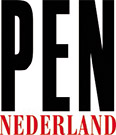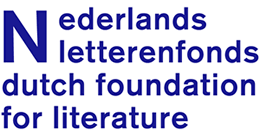Persbericht PEN International Nobelprijs
PEN INTERNATIONAL REITERATES CALL TO RELEASE LIU XIAOBO AS NOBEL PEACE PRIZE AWARDED IN OSLO
OSLO, 9 December 2010 – Today in Oslo, PEN International has reiterated its call, echoed by writers, journalists and essayists, as well as political and civic leaders around the world, for the immediate and unconditional release of Liu Xiaobo, recipient of this year’s Nobel Peace Prize.
Liu Xiaobo is a past President of the Independent Chinese PEN Centre (ICPC) and one of its 30 founding members. A delegation of 20 senior PEN members, led by International President John Ralston Saul, along with Writers in Prison Committee Chairperson Marian Botsford Fraser and ICPC President Tienchi Martin-Liao, are in Oslo and will be attending the Nobel prize-giving ceremony to represent Dr Liu.
PEN International will also be co-hosting a seminar in Oslo on Friday 10 December, along with Amnesty International, to highlight the ongoing suppression of writers and activists across China and to urge China’s government to embrace reform.
John Ralston Saul comments: “It is the Chinese Constitution that commits their government to civil and political rights. Liu Xiaobo is a model of the serious citizen who embraces his full legal rights. He should be admired for this, not imprisoned. China needs citizens like Liu Xiaobo.”
There will likely be nobody present at tomorrow’s Nobel prize-giving ceremony to receive Liu Xiaobo’s prize – he is currently serving an 11-year prison sentence in China and his wife, Liu Xia, is under house arrest and incommunicado.
Since the announcement of the prize in October, scores of other writers, artists, academics and activists in China have been silenced by the authorities. According to the ICPC, more than 30 of its own members, including board members and vice presidents, along with hundreds of other Chinese citizens, have been harassed, summoned for interrogation, detained under house arrest or prevented from travelling from mainland China in the last two months.
“Liu Xiaobo will not be the last victim of China’s censorship and literary inquisition,” says Tienchi Martin-Liao. “As current Honorary President of the ICPC, Liu Xiaobo truly represents the spirit of ‘Free the Word’. As Nobel Peace Laureate, his very absence at the Oslo ceremony tomorrow reinforces the power of the word to challenge and transform authoritarian regimes.”
Dr Liu is a renowned Chinese writer and human rights activist who taught Chinese literature at Beijing Normal University until he was jailed for his part in the Tiananmen Square protests in 1989. During these student protests, he had been instrumental in negotiating a peaceful withdrawal for several thousand protestors penned in by the military. He was later accused of inciting the protests and he lost his job at the university. He was detained under house arrest for nine months in 1995 and underwent three years’ re-education through labour from 1996-9. All his writings have been banned in China, although he has continued to publish outside the country.
In 2008, Liu Xiaobo was detained for the fourth time by Chinese authorities for his participation in the drafting of Charter 08, a human rights manifesto which calls for greater freedom of expression and which has been signed by over 10,000 Chinese people from all walks of life. He was incarcerated for 11 years on 25 December 2009 after being convicted of “inciting subversion of state power”.
PEN International, through its Writers in Prison Committee, took up Liu’s case in 1990 and has been working to support him and other Chinese writers under threat for twenty years. He is also the 50th emblematic case commemorated by the Writers in Prison Committee which celebrates its half-century in 2010.
PEN International counts many Nobel literature laureates among its global membership, including this year’s prizewinner, Mario Vargas Llosa, who is a former PEN International President. However, Liu Xiaobo is the first PEN member to be awarded the Nobel Peace Prize.
Also in Oslo this week is “A Chair for Liu Xiaobo”. Created by students and staff at Lomond School in Helensburgh, for the Scottish PEN Centre, the chair has travelled to Oslo to become the visual centrepiece of PEN’s campaign to free Liu Xiaobo. The chair contains Dr Liu’s image, along with one of his quotes in Chinese:
“I have no enemies and no hatred… …for hatred is corrosive of a person’s wisdom and conscience; the mentality of enmity can poison a nation’s spirit, instigate brutal life and death struggles, destroy a society’s tolerance and humanity, and block a nation’s progress to freedom and democracy. I hope therefore to be able to transcend my personal vicissitudes in understanding the development of the state and changes in society, to counter the hostility of the regime with the best of intentions, and defuse hate with love.”
The “empty chair” represents all those writers who are absent from the public sphere because they are imprisoned, censored or under threat, or have even been killed because of their writing. It has become a PEN tradition over the years to commemorate absent colleagues in this way.
Kwame Anthony Appiah, President of the PEN American Centre, was one of those who nominated Liu Xiaobo for the Nobel Peace Prize. He says: “The Nobel committee, in selecting Liu Xiaobo for the Peace Prize, has thrown the spotlight on his cause: the democratisation of the country he loves and works for. The response of the Chinese government shows how far there is to go in that struggle. But his own quiet courage inspires all of us who care about freedom to work hard every day to help the Chinese achieve the fundamental freedoms that are the right of every human being.”






